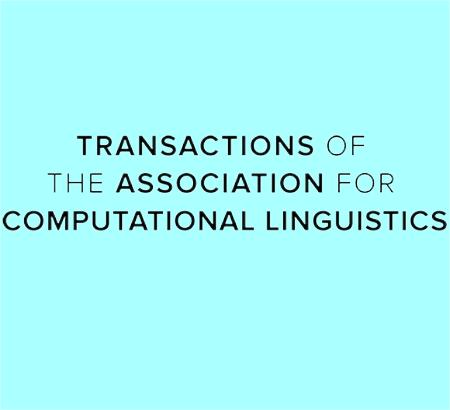学习仿写不同复杂程度的句子
IF 4.2
1区 计算机科学
Q2 COMPUTER SCIENCE, ARTIFICIAL INTELLIGENCE
Transactions of the Association for Computational Linguistics
Pub Date : 2023-08-04
DOI:10.1162/tacl_a_00606
引用次数: 0
摘要
摘要 虽然句子简化是 NLP 中一个活跃的研究课题,但与之相邻的句子复杂化和同级意译任务却并不活跃。为了训练这三个任务的模型,我们提出了两个新的无监督数据集。我们将这些数据集(一个由弱分类器标注,另一个由基于规则的方法标注)与单一的有监督数据集进行了比较。利用这三个数据集进行训练,我们对多任务和提示策略进行了广泛的实验。与其他在无监督并行数据上训练的系统相比,在我们的弱分类器标注数据集上训练的模型在 ASSET 简化基准上达到了最先进的性能。我们的模型在句子级目标定位方面的表现也优于之前的工作。最后,我们还确定了一些大型语言模型在零镜头设置下对这些任务的表现。本文章由计算机程序翻译,如有差异,请以英文原文为准。
Learning to Paraphrase Sentences to Different Complexity Levels
Abstract While sentence simplification is an active research topic in NLP, its adjacent tasks of sentence complexification and same-level paraphrasing are not. To train models on all three tasks, we present two new unsupervised datasets. We compare these datasets, one labeled by a weak classifier and the other by a rule-based approach, with a single supervised dataset. Using these three datasets for training, we perform extensive experiments on both multitasking and prompting strategies. Compared to other systems trained on unsupervised parallel data, models trained on our weak classifier labeled dataset achieve state-of-the-art performance on the ASSET simplification benchmark. Our models also outperform previous work on sentence-level targeting. Finally, we establish how a handful of Large Language Models perform on these tasks under a zero-shot setting.
求助全文
通过发布文献求助,成功后即可免费获取论文全文。
去求助
来源期刊
CiteScore
32.60
自引率
4.60%
发文量
58
审稿时长
8 weeks
期刊介绍:
The highly regarded quarterly journal Computational Linguistics has a companion journal called Transactions of the Association for Computational Linguistics. This open access journal publishes articles in all areas of natural language processing and is an important resource for academic and industry computational linguists, natural language processing experts, artificial intelligence and machine learning investigators, cognitive scientists, speech specialists, as well as linguists and philosophers. The journal disseminates work of vital relevance to these professionals on an annual basis.

 求助内容:
求助内容: 应助结果提醒方式:
应助结果提醒方式:


